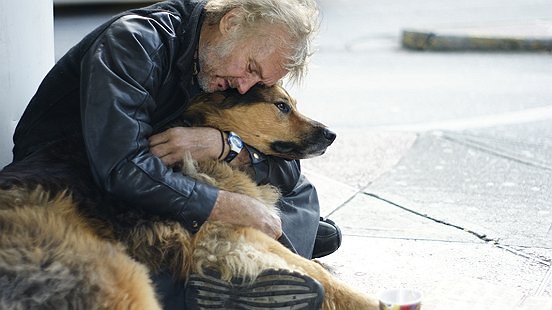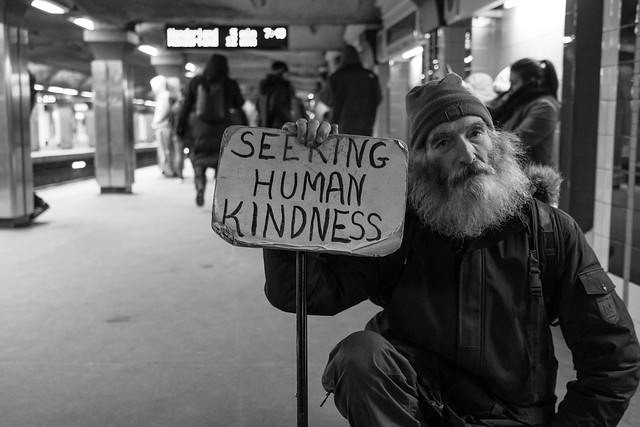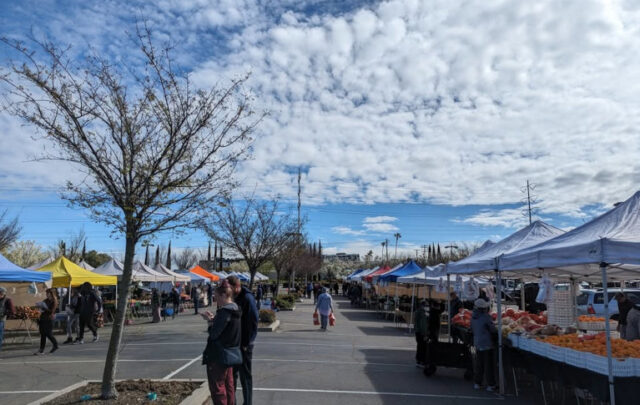We cannot force up the wages of labour, or force down the prices of provisions, without disorganising society” – Sir Charles Trevelyan, 1846
It’s a sad fact that this quote, from the Treasury official responsible for the Government response to starvation during the potato famine in both Ireland and Scotland, seems relevant again today.
The problem cited during the potato famine was that to hand out food for free would disrupt the local economy, which had failed in North West Scotland because of the decline in the kelping industry. In the end the response in North West Scotland for most of the famine was not managed by the government but by the Central Board of Management of the Fund for the Relief of the Destitute Inhabitants of the Highlands. This was an amalgamation of independently formed groups from Edinburgh and Glasgow, and was funded a significant charitable donation campaigns.
Indeed the suffering of Victorian labourers led not to any grand reorganisation of society. Instead, the advent of charity has shaped our approach to social inequality ever since. But whilst charitable benevolence is often seen as the mark of a successful businessman, those forced to ask for help are often stigmatised in our society. So we see that people already demonised for needing benefits, at a time when falling wages do not match the rising cost of living, often face further judgement for requiring food banks. When wages don’t cover the cost of living, benefits are effectively subsidies to employers. In some cases even the welfare state is not sufficient to stop people ending up on the street.
In the recent cold weather the epidemic of homelessness has never seemed so prominent; local authorities are to be applauded for kicking in extra funding to make beds available for free, but even these have in many cases been unavailable to rough sleepers with animal companions and in some cases have even led to charities reporting service users to the immigration authorities.
“The dog has been with me 9 years, I’ve been homeless 6 months. If the dog sleeps outside then I do too.” – Leeds rough sleeper
 The ravages of free market liberalism may be showing us their death throws, or they may be reaching a new peak, but it is clear – with wealth inequality spiralling in the UK right now – that fundamentally the overall trend is not toward these problems being solved.
The ravages of free market liberalism may be showing us their death throws, or they may be reaching a new peak, but it is clear – with wealth inequality spiralling in the UK right now – that fundamentally the overall trend is not toward these problems being solved.
So how should we, as a society, approach inequality? What action can we take?
It could be argued that such sweeping changes are the realm of government, and certainly the recent trend of voter control by fear will need to change. Indeed in the Scottish independence referendum and general election of 2017 that seemed to happen. In Scotland the broadly more positive campaign lead by the SNP gained polling ground from start to finish. In GE2017 Labour’s offering of a message of positive change seemed to overcome the narrative that austerity was necessary.
It is also abundantly clear, however, that building positive relationships in communities can have a huge impact. From the success of the transition town movement, through the growing engagement with the anti waste movement led by the real junk food project, to the resistance to fracking and increased union membership it is clear that more and more people are choosing to stand together and take action to improve the world around them.
This was written during the largest industrial action that UK universities have ever seen, in opposition to changes to the USS pension scheme, which at the time of writing is showing signs of success. There have also been numerous stories in recent years of employees working under precarious conditions (the so called “gig economy”) unionising and fighting for better conditions at work. So standing together, putting all of our feet down and saying enough is enough can really change things. This is also evident in the very low take up of fracking in the UK. In Scotland fracking is banned (though this is now being legally challenged). The failure of fracking elsewhere despite, many years of support from central conservative led government, has been put down largely to the extra expense in security and legal action which is forced by public resistance.

Meanwhile communities are coming together voluntarily to improve their environment and wellbeing. By producing food locally, managing land to reduce flood risk, redistributing unsold food and so on and so on, people improve their access to the necessities of life, in terms of food security and disaster mitigation, whilst building valuable social support networks.
These are not acts of charity, but of community. This is not about rich helping poor, but everyone working together. This is not about government abdicating responsibility, but people choosing to stand up and help each other. Giving money can often be a way of avoiding our feelings of guilt, whereas increasingly people are using these negative emotions as motivator for positive change. Community voluntary action is taking the place of charitable donation as people increasingly allow themselves to respond emotionally to social inequality when they see it around them.





